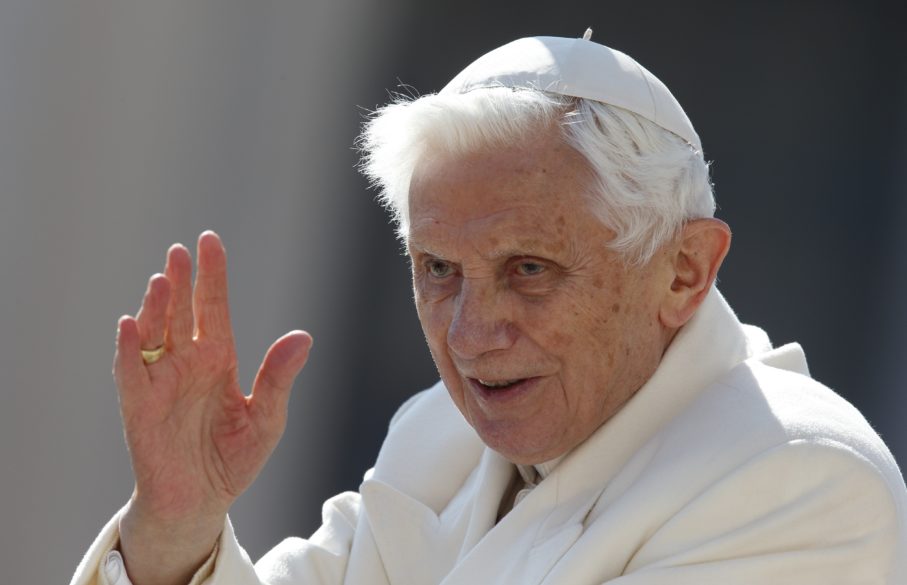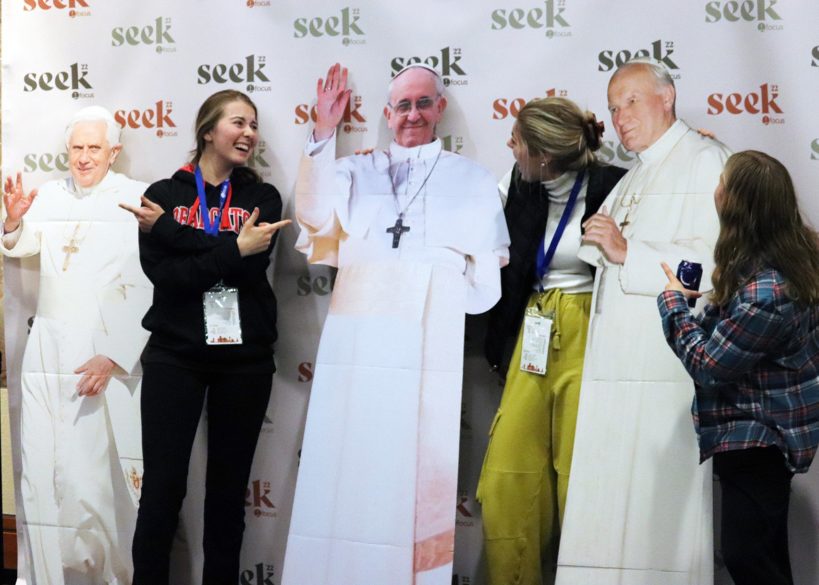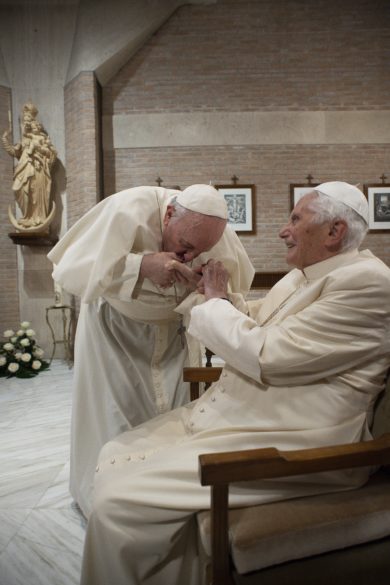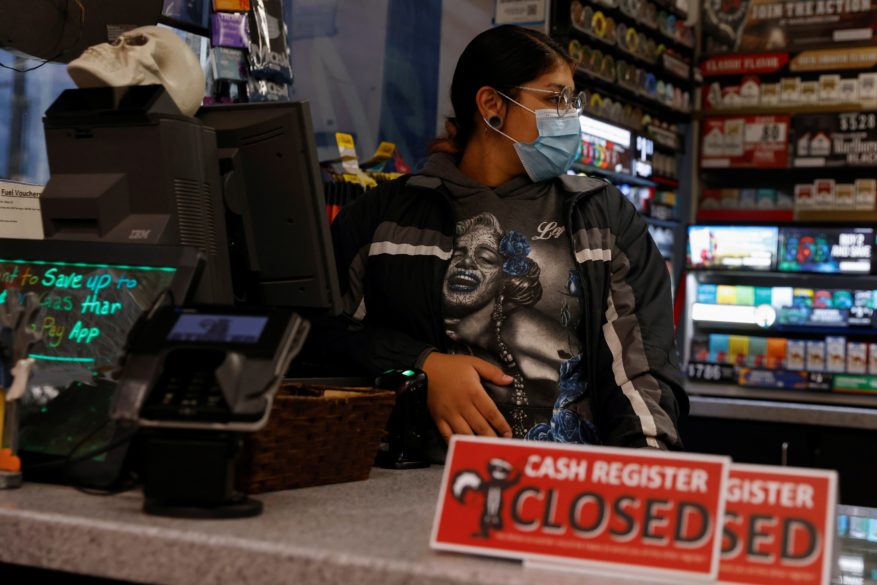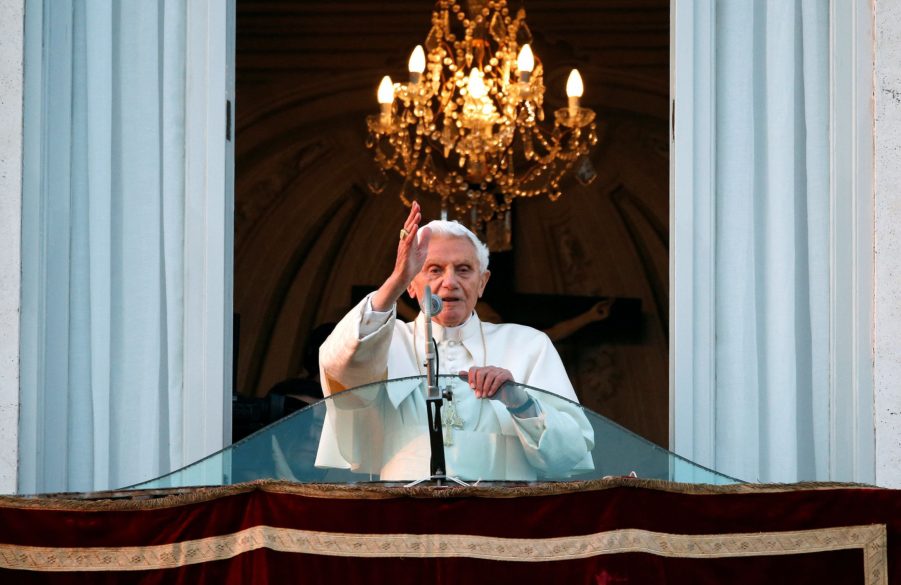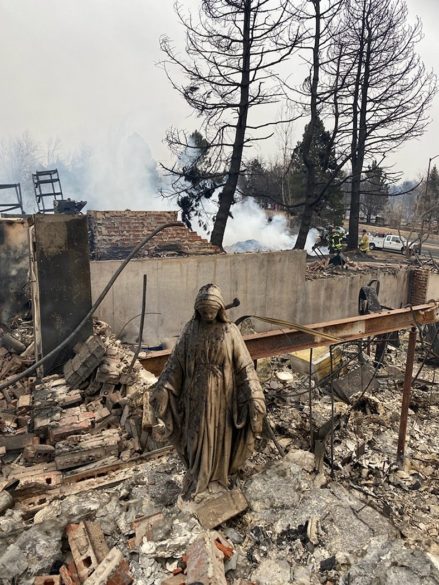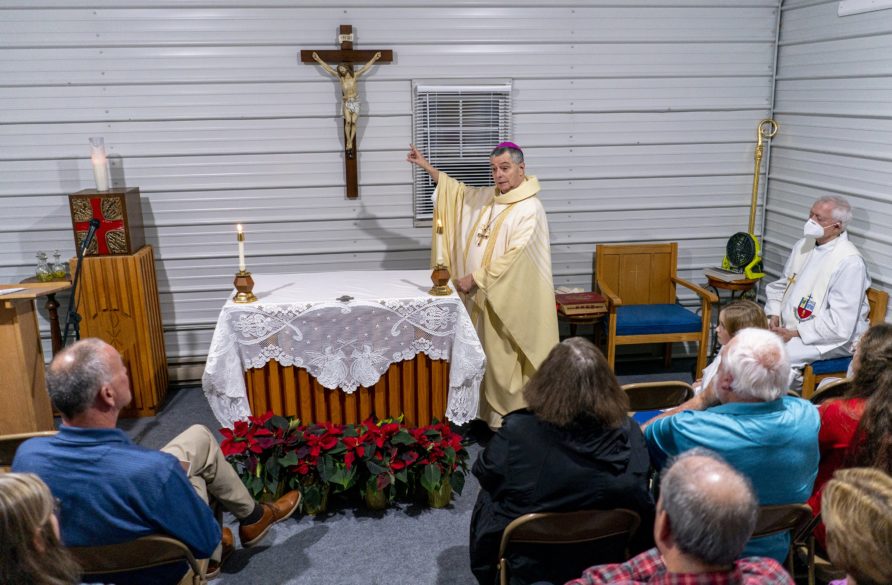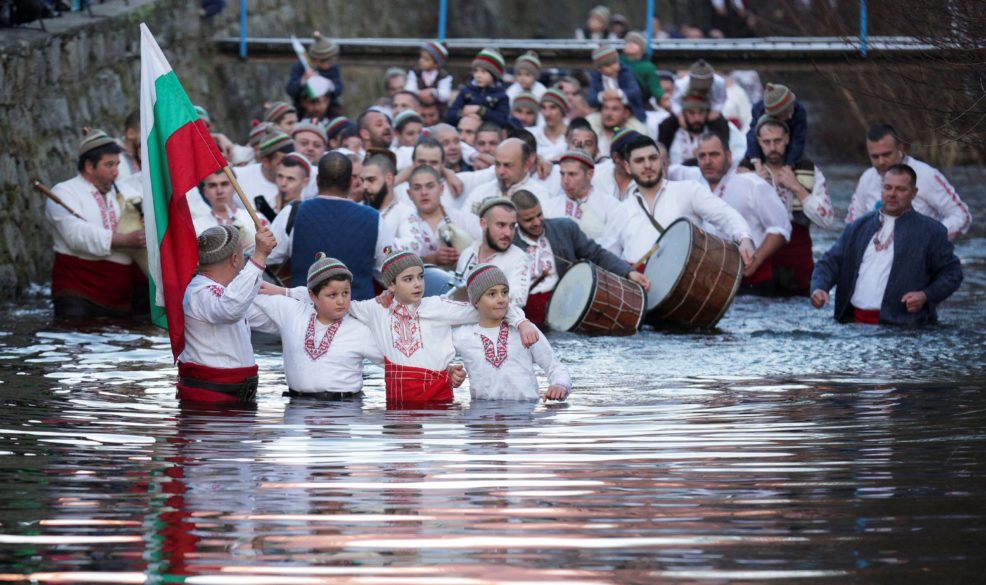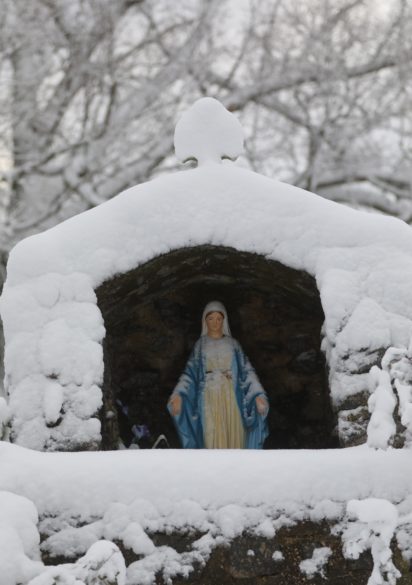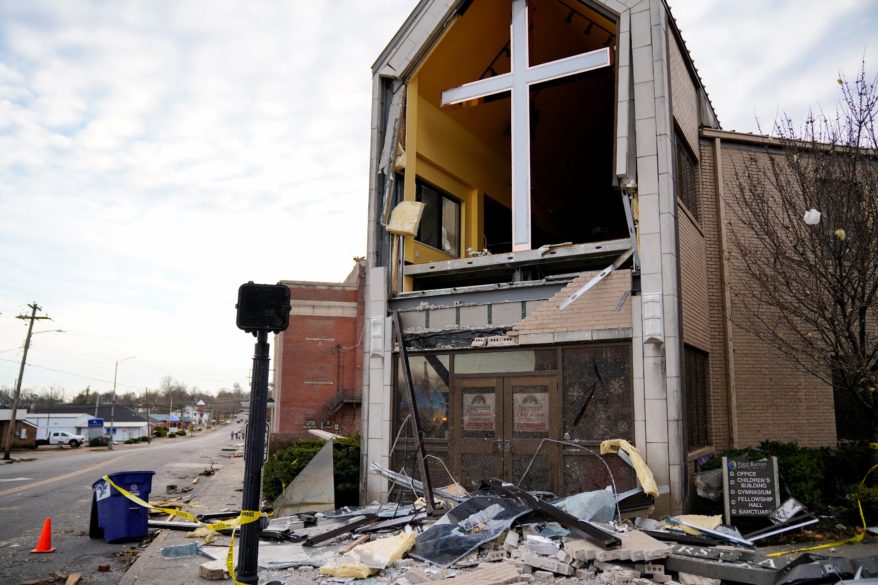NATION
NEW YORK (CNS) – In emotional remarks Feb. 2 at St. Patrick’s Cathedral, the sister of slain Officer Wilbert Mora paid tribute to her brother and his late partner, Officer Jason Rivera, but also decried the “violence and crime” taking the lives of police as they try to protect the citizenry. “It hurts me to know that two exemplary young men, like Officer Jason Rivera and Wilbert Mora, were taken before their time,” Karina Mora told the mourners who packed the cathedral for the funeral Mass for her brother. The service took place less than a week after Rivera’s funeral Mass, also at the cathedral. These were two young men “who wanted to make a difference and a change in their city with their service and their sacrifice,” said Karina Mora, who spoke in Spanish, with her words interpreted in English for the congregation. “Now I only ask myself, how many Wilberts, how many Jasons, how many more officers will have to lose their lives for this system to change?” she said. “How many other lives who protect us will be taken away by violence and crime? How many mothers? How many more mothers, how many children will have to lose their family and live this trauma and this kind of tragedy?”
WASHINGTON (CNS) – Trying to advance the economic status of American Indians is like playing a game of Monopoly that they can never win, said panelists during a Jan. 30 plenary session of the Jan. 29-Feb. 1 Catholic Social Ministry Gathering. “Imagine you arrive to the game late … and you see what properties are remaining. On this monopolized board, all the properties are taken. That’s where we come in. We were invited to play the game decades later,” said Lakota Vogel, executive director of the Four Bands Community Fund in South Dakota. “We come to the Monopoly board without money to buy the property, and we can’t even build houses there. We just hope we build something that makes everybody else pay taxes,” said Tara Mason, historical trauma coordinator for the Niibi Center, a nonprofit organization serving the White Earth Reservation members in Minnesota. “We’re at a disadvantage from multiple perspectives,” added Mason, herself a member of the Minnesota Chippewa Tribe, White Earth Band. “It’s not even the same Monopoly game that we have an opportunity to play.” Vogel said one solution would be to “rewrite the rules of the game. Or maybe we’re creating a whole new board for us to operate in.” Pete Upton, board chair of the Native CDFI Network – CDFI is an acronym for community development financial institution – is trying to rewrite those rules. And if he can’t do it, he suggested that Congress can.
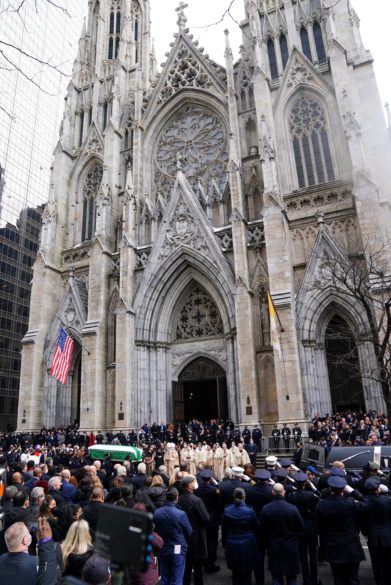
VATICAN
VATICAN CITY (CNS) – Akash Bashir, a 20-year-old volunteer security guard who was killed by a suicide bomber in 2015, is the first Pakistani to be given the title, “servant of God,” an initial step on the path to sainthood. Archbishop Sebastian Shaw of Lahore, Pakistan, informed Catholics of his archdiocese that Pope Francis had granted the title to Bashir Jan. 31, the feast of St. John Bosco. “We praise and thank God for this brave young man, who could have escaped or tried to save himself, but he remained steadfast in his faith and did not let the suicide bomber enter the church. He gave his life to save more than a thousand people present in the church for Sunday Mass,” the archbishop said, according to Fides, the news agency of the Congregation for the Evangelization of Peoples. Bashir had studied at the Don Bosco Technical Institute in Lahore and was one of the parishioners of the Church of St. John who volunteered to provide security outside the church. “Akash was on duty at the church entrance gate on March 15, 2015, when he spotted a man who wanted to enter the church with an explosive belt on his body,” Fides said. “Akash blocked him at the entrance gate, foiling the terrorist’s plan to massacre those inside the church.”
VATICAN CITY (CNS) – The “true gold medal” at the upcoming Olympic and Paralympic Games goes to everything that helps the global community be more welcoming and accepting of all people, Pope Francis said. At the end of his general audience Feb. 2, the pope focused on the bonds that unite all people in one human family as he prayed for the people of Myanmar, spoke about the upcoming 2022 Beijing Olympics and Paralympics and anticipated the International Day of Human Fraternity. For more than a year, “we have watched with pain the violence staining Myanmar with blood,” the pope said. A coup Feb. 1, 2021, ended the country’s experiment with democracy and set off protests and repression, death and detention. Joining an appeal launched by the country’s bishops, the pope called on the international community “to work for reconciliation between the parties involved. We cannot look away from the suffering of so many of our brothers and sisters. Let us ask God, in prayer, for consolation for that tormented population.” Pope Francis also noted that Feb. 4 would be the second celebration of International Day of Human Fraternity, a U.N.-declared observation to promote interreligious dialogue and friendship on the anniversary of the document on human fraternity signed in Abu Dhabi in 2019, by Pope Francis and Sheikh Ahmad el-Tayeb, grand imam of Al-Azhar in Egypt.
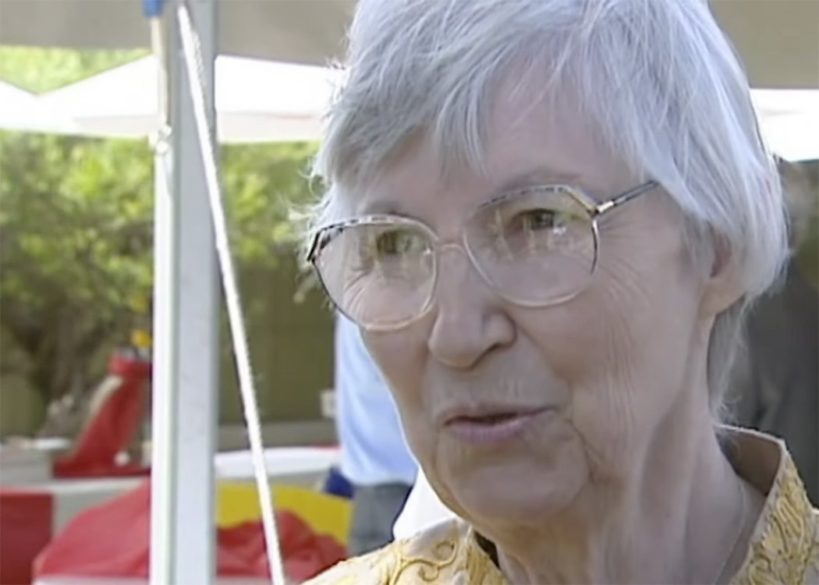
WORLD
MEXICO CITY (CNS) – Retired Bishop Onésimo Cepeda Silva of Ecatepec – the colorful and controversial Mexican bishop who rubbed shoulders with the rich, served one of the country’s roughest dioceses and made a brief, but disastrous foray into electoral politics – died Jan. 31. He was 84. The Diocese of Ecatepec confirmed Bishop Cepeda’s death, as did the Mexican bishops’ conference, which barely 10 months earlier disavowed his registration as a legislative candidate for a minor political party. Bishop Cepeda had contracted COVID-19 three weeks earlier, according to church statements. Mexican media reported he had been intubated. Bishop Cepeda cut a controversial course through Mexico’s public life. He served the ramshackle suburbs of Mexico City, but appeared in society publications and played golf at expensive country clubs. Politicians and business elites regularly attended his birthday celebration. He reputedly came under investigation for his acquiring a wealthy church donor’s art collection, which contained works by Latin masters Diego Rivera and Rufino Tamayo. Bishop Cepeda also served as a godfather to bullfighters, according to Mexican media.
ADELAIDE, Australia (CNS) – Mercy Sister Janet Mead, who earned gold records for her 1974 hit version of the Our Father, died Jan. 26 in her native Adelaide. She was 84 and had been battling cancer. In 1974, “The Lord’s Prayer,” set to an uptempo rock beat, scaled up the charts, peaking at No. 4 in the United States and No. 3 in Australia, earning her gold records for the single. Sister Mead was an unlikely pop star. The only other nun in U.S. history to crack the top 10 in the United States was Soeur Sourire, better known as The Singing Nun, for her lively folk ode to St. Dominic, 1963’s French-language “Dominique.” Sister Mead also was the first Australian to have a gold record in the United States. The single was distributed to 31 countries, according to ABC, Australia’s government-subsidized broadcaster, selling, by various accounts, 1.5 million, 2 million or 3 million copies worldwide. Sister Mead was even nominated for a Grammy, but lost out to Elvis Presley. She declined an offer to tour the United States and donated all her royalties to charity. But for those who weren’t monitoring Top 40 radio in 1974, they might have heard her arrangement played during Masses at Catholic churches and schools.

